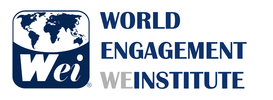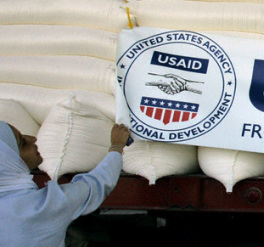|
The World Engagement Institute (WEI) works in collaboration with other partners in the bidding of competitive requests for proposals (RFPs) from various intergovernmental organizations or US-based agencies relevant to our international development mission. WEI also offers its competencies and coordinated teams of subject matter experts (SMEs) for sub-contracting or consultancies requested by programs of government and intergovernmental initiatives. Thanks to our seasoned staff and senior collaborators, WEI is competing with innovative ideas and competitive funding mechanisms aimed at maximizing the resources and benefits of our local and regional partners and at establishing programs that continue beyond the length of the project. WEI also offers government grant writing trainings to our associates and young professionals.
WEI offers international capacity development programs in the area of human rights, civil society engagement, human security, legal system enhancements, women rights and literacy. Our diverse spectrum of subject matter experts are academics and practitioners well equipped in cooperating with government development agencies, government programs, intergovernmental economic development institutions. The following is a partial list of institutions and programs our institutions compete for grant programs and international development projects. |
EC Development and Cooperation (EuropeAID)

- EuropeAid Development and Cooperation is responsible for designing European development policy and delivering aid throughout the world. EuropeAid delivers aid through a set of financial instruments with a focus on ensuring the quality of EU aid and its effectiveness. WEI is in the process of registering as a European NGO and intends to cooperate with the EC offering tools and activities for the promotion of good governance, human and economic development and tackle universal issues, such as fighting hunger and preserving natural resources. WEI organizational partners in Europe bid for funds and projects in the area of cooperation and development. Read more at http://ec.europa.eu/europeaid
International Development Law Organization (IDLO)

IDLO is an intergovernmental organization that offers legal expertise, resources, tools and professional support to governments, multilateral partners, and civil society organizations. It carries out research and advocacy at national and international levels. Bringing together a range of diverse local, national and international stakeholders and working in an enabling rather than directive or prescriptive way, IDLO acts as a catalyst for significant social change. IDLO’s work reflects the interdependence be-tween the rule of law, human security and economic development. It enhances respect for human rights; encourages economic activity by providing a legal framework for business, trade and investment; and strengthens good governance through transparency and ac-countability of institutions. Read more at http://www.idlo.int
UN Development Programme (UNDP)
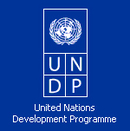
- The United Nations Development Programme (UNDP) is the UN's global development network advocating for change and connecting countries to knowledge, experience and resources to help people build a better life. They work in collaboration with various technical experts to develop local capacity in more that 166 countries. WEI's mission and operations align with the Millennium Development Goals, and global poverty alleviation through capacity development in democratic governance, women empowerment and sustainable community development. WEI is currently collaborating with the UNDP country office in Vietnam on a Combatting Trafficking in Persons Training Program. Read more at http://www.undp.org
UN Human Rights Council (UNHRC)

- The Human Rights Council is an inter-governmental body within the UN system made up of 47 States responsible for strengthening the promotion and protection of human rights around the globe. The Council was created by the UN General Assembly on 15 March 2006 with the main purpose of addressing situations of human rights violations and make recommendations on them. WEI associates have numerous experiences assisting the council on legal and expert human rights related matters. Read more at http://www.ohchr.org
UN Office of Drugs and Crime (UNODC)
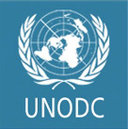
- UNODC is mandated to assist Member States in their struggle against illicit drugs, crime and terrorism. In the Millennium Declaration, Member States also resolved to intensify efforts to fight transnational crime in all its dimensions, to redouble the efforts to implement the commitment to counter the world drug problem and to take concerted action against international terrorism.UNODC is a global leader in the fight against illicit drugs and international crime. Established in 1997 through a merger between the United Nations Drug Control Programme and the Centre for International Crime Prevention, UNODC operates in all regions of the world through an extensive network of field offices. WEI is currently collaborating with the UNODC Southeast Asia and Vietnam office for the Combatting Trafficking in Persons Training Program. Read more at http://www.unodc.org
African Development Bank (AfDB) Group

_
- The institution’s greatest assets are its human resources which come from a wide geographic area. The Bank is an equal opportunity employer and firmly believes that recruitment from a wide geographical and cultural spectrum enriches the institution with varied talents, experiences and skills that will enhance the quality of human resources management and ultimately the realization of the Bank’s mission of reducing poverty across the continent. In accordance with its policy of decentralization aimed at taking its operations closer to its beneficiaries, the Bank has, over the past few years, established about 23 field and country offices across the continent.The African Development Bank (AfDB) Group’s mission is to help reduce poverty, improve living conditions for Africans and mobilize resources for the continent’s economic and social development. With this objective in mind, the institution aims at assisting African countries – individually and collectively - in their efforts to achieve sustainable economic development and social progress. Combating poverty is at the heart of the continent’s efforts to attain sustainable economic growth. To this end, the Bank seeks to stimulate and mobilize internal and external resources to promote investments as well as provide its regional member countries with technical and financial assistance. Read more at http://www.afdb.org/en/
Asian Development Bank (ADB)

- Established in 1966, the Asian Development Bank (ADB) is a major source of development financing for the Asia and Pacific region. With more than $17.5 billion in approved financing, and 2,800 employees from 59 countries, ADB - in partnership with member governments, independent specialists and other financial institutions - is focused on delivering projects that create economic and development impact. Read more at http://www.adb.org
Inter-American Development Bank (IDB)

- The Inter-American Development Bank (IDB) supports efforts by Latin America and the Caribbean countries to reduce poverty and inequality. They aim to bring about development in a sustainable, climate-friendly way. Established in 1959, IDB is the largest source of development financing for Latin America and the Caribbean, with a strong commitment to achieve measurable results, increased integrity, transparency and accountability. IDB has an evolving reform agenda that seeks to increase our development impact in the region. Read more at http://www.iadb.org
The World Bank (WB)

- The World Bank's mission is to reduce poverty and improve living standards for people in the developing world. The Bank provides loans, policy advice based on economic and sector analytical work, technical assistance, grants, and increasingly, knowledge-sharing services to governments. The World Bank acknowledges the importance of the engagement of civil society in development. There are several facilities or programs that provide grants to civil society organizations (CSOs). For more information on the World Bank, see http://www.worldbank.org and for more information on the WB relations with 'NGOs and civil society' see http://www.worldbank.org/participation and http://www.worldbank.org/ngos
Australian Council for International Development (ACFID)
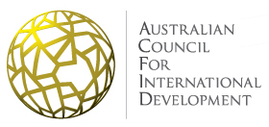
- The Australian Council for International Development is the peak Council for Australian not-for-profit aid and development organisations working to attain a world where gross inequality and extreme poverty are eradicated. It administers a Code of Conduct committing members to high standards of integrity and accountability. The code is a voluntary, self–regulatory sector code of good practice. It aims to improve international development outcomes and increase stakeholder trust by improving the transparency and accountability of signatory organisations. The code sets out standards in three areas of accountability: (1) program principles, including obligations for effectiveness in aid and development activities, human rights and working with partner agencies; (2) public engagement, including obligations to be ethical and transparent in marketing, fundraising and reporting and (3) organisation, including obligations for governance, management, financial controls, treatment of staff and volunteers, and complaints. Read more at http://www.acfid.asn.au
Higher Education for Development (HED)

- Higher Education for Development (HED) works in close partnership with the United States Agency for International Development (USAID) and operates with the advice and counsel of the six major presidential higher education associations to support the engagement of higher education in development issues worldwide. HED manages innovative partnerships that join U.S. colleges and universities with institutions of higher learning in developing nations. In this way, we support and facilitate the engagement of U.S. higher education in global development. Numerous recent studies show that, for lasting results, technology transfer must be accompanied by capacity-building in education and research. By forming relationships between U.S. institutions and institutions in developing countries, HED partnerships build human and institutional capacity to create positive change and meet development needs. The key to sustainable development, economic growth and wealth creation is a critical mass of well-qualified local scientists, engineers, teachers and other professionals. HED partnerships help build that critical mass by investing in activities that foster the skills and knowledge people in developing countries need to participate in and contribute to economic growth. Read more at http://www.hedprogram.org/
U.K. Department for International Development (DFID)

- DFID is the United Kingdom government Department for International development. Its goal is "to promote sustainable development and eliminate world poverty". DFID is a major contributor in international development programs and 'an international development leader in times of global crisis'. DFID's main programme areas of work are Education, Health, Social Services, Water Supply and Sanitation, Government and Civil Society, Economic Sector (including Infrastructure, Production Sectors and Developing Planning), Environment Protection, Research, and Humanitarian Assistance. The main piece of legislation governing DFID's work is the International Development Act, which came into force on 17 June 2002, replacing the Overseas Development and Co-operation Act (1980). The Act makes poverty reduction the focus of DFID's work, responding to disasters and emergencies, as well as supporting the United Nations' eight Millennium Development Goals (MDGs). Read more at http://www.dfid.gov.uk/
U.S. Agency for International Development (USAID)

- The United States Agency for International Development (USAID) carries out U.S. foreign policy by promoting broad-scale human progress. At the same time it expands stable, free societies, creates markets and trade partners for the United States, and fosters good will abroad. USAID works in over 100 countries to Promote broadly shared economic prosperity; Strengthen democracy and good governance; Protect human rights; Improve global health, Advance food security and agriculture; Improve environmental sustainability; Further education; Help societies prevent and recover from conflicts; and Provide humanitarian assistance in the wake of natural and man-made disasters. USAID offers a variety of contracts, grants, and cooperative agreements providing technical assistance to support the attainment of the agency's objectives. WEI and its partnering agencies compete for USAID grants furthering the objectives of the Foreign Assistance Act. WEI works with other partners to bid competitive grants and contracts in the area of human rights, legal institutional capacity building, literacy and development, and anti-human trafficking. Read more at http://www.usaid.gov
U.S. Department of Education (DOED)
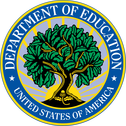
- Department of Education offers discretionary grants to organizations who meet the eligibility requirements. Grants are awarded using a competitive process. Discretionary grant application packages lists most ED competitions that are currently open, with links to application information for each competition. Grants.gov lists discretionary grant competitions from across the federal government, including many ED competitions. E-grants.ed.gov is ED's online application system. WEI associates promote education and trainings as central to its mission to developing international capacity. Various WEI associates have educational experiences and focus on the concern of special education and education rights. Read more at http://www.ed.gov/
U.S. Department of Labor (DOL)
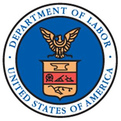
- The Office of the Assistant Secretary for Administration and Management (OASAM), through the Department's Procurement Executive, is responsible for the overall implementation of the Department's procurement and grant programs and ensures that these programs are performed in accordance with the appropriate laws and regulations. Through delegations of grant and procurement authority these programs are implemented through a decentralized procurement structure via several operational acquisition and assistance offices. Various WEI associates specialize in labor rights in their international and intercultural realms. Read more at http://www.dol.gov
U.S. Department of Justice (DOJ)
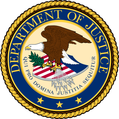
- The Department offers funding opportunities to conduct research, to support law enforcement activities in state and local jurisdictions, to provide training and technical assistance, and to implement programs that improve the criminal justice system. Office of Justice Programs offers federal financial assistance to scholars, practitioners, experts, and state and local governments and agencies. Other grants and contract programs under the DOJ include the Office on Violence Against Women. WEI offers the DOJ professional competency and innovative approaches in promoting justice related institutional capacity both domestically and abroad. Read more at http://www.justice.gov
U.S. Department of State (DOS)
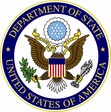
- The US Department of State offers a variety of request for proposals (RFPs) to advance freedom for the benefit of the American people and the international community by helping to build and sustain a more democratic, secure, and prosperous world composed of well-governed states that respond to the needs of their people, reduce widespread poverty, and act responsibly within the international system. WEI offers a variety of competitive programs and projects serving the grants and contracts offered by the DOS. Read more at http://www.state.gov
U.S. Middle East Partner Initiative (MEPI)
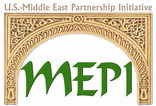
- The Middle East Partnership Initiative (MEPI) is a regional program that helps citizens in the Middle East and North Africa develop more pluralistic, participatory, and prosperous societies. From within the Near Eastern Affairs Bureau at the State Department, MEPI advances U.S. foreign policy goals by supporting citizens’ efforts at economic, social, and political empowerment, expanding opportunities for women and youth, and helping communities work alongside governments in shaping their own futures. MEPI’s activities underscore President Obama and Secretary Clinton’s commitment to democracy and civil society in the region, and follow the approach the President laid out in his Cairo speech: engaging with peoples as well as governments, in a spirit of mutual respect and rooted in a commitment to universal values. MEPI staff, based in Washington, D.C., Tunis, and Abu Dhabi, as well as in U.S. embassies throughout the MENA region, works to identify the needs articulated by the people of the region and creates partnerships with NGOs, academic institutions, and even governments, to address those needs. Read more at http://mepi.state.gov/
